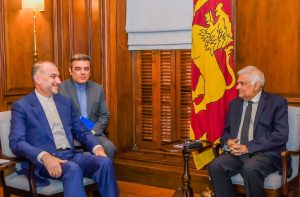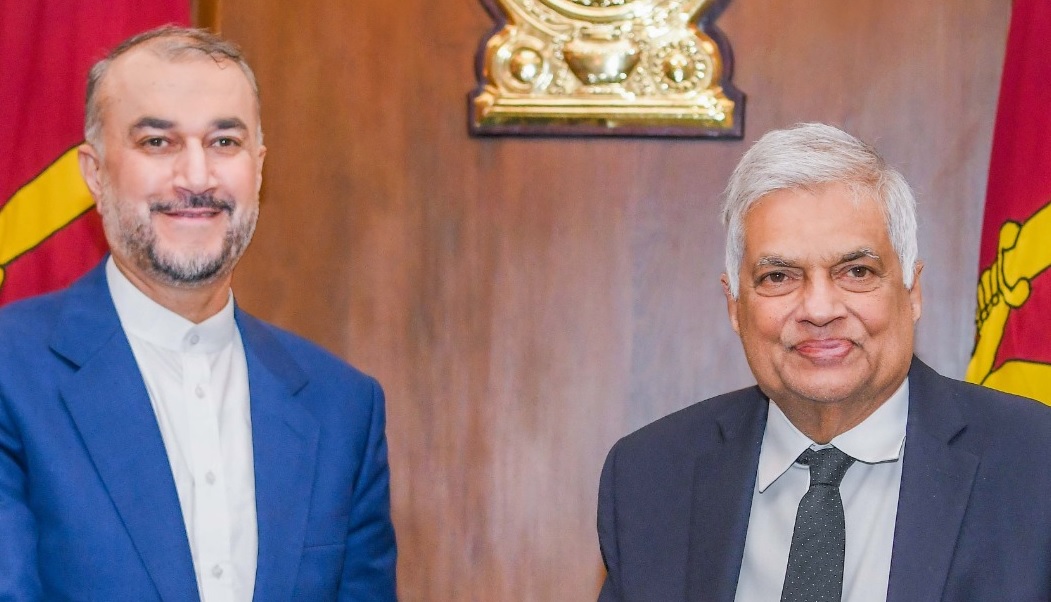Five key points in the fire play with Iran
Iran, which is under heavy pressure from the 2012 economic sanction imposed by the United States is exploring ways and mens to reach out to other countries and Sri Lanka is a obvious choice because Iran has been supporting Sri Lanka within the UNHCR proses and is badly in need of oil.
Iranian Foreign Minister Amir Abdullahian met top Sri Lankan government officials including President Ranil Wickremesinghe, Prime Minister Dinesh Gunawardena, and his counterpart Ali Sabri.

President WickremesingheHighlighting Sri Lanka’s strategic position in the Indian Ocean, emphasized the nation’s commitment to ensuring Freedom of Navigation, particularly in the Persian Gulf.
Minister Amir-Abdollahian expressed Iran’s dedication to fostering tourism to Sri Lanka and strengthening cultural ties between the two nations. He further conveyed Iran’s eagerness to explore avenues for expanded economic cooperation with Sri Lanka.
Commentators point out that the Iranian connection could be playing with fire if not manged properly .Here are five points to think about.
Sanctions impact: While Sri Lanka and Iran express enthusiasm for economic cooperation, the 2012 US sanctions remain a significant hurdle. Sri Lanka struggled to pay for past oil imports and cannot directly invest in Iran due to these restrictions.
“Tea for oil” workaround: Despite limitations, a unique “tea for oil” barter system helps Sri Lanka settle past crude import debts, demonstrating alternative trade possibilities.
Strategic alignment: Both nations seek are trying sing out of the same sheet – regional peace and prosperity, suggesting shared goals that could drive cooperation beyond immediate economic challenges. How ever many including the USand Pakistan are skeptical of Irans position and prefer to see Iran cornered.
Alternative currency solutions: Exploring trade in Asian currencies is an attempt to circumvent US dollar restrictions and facilitate transactions.
Potential risks: Despite benefits, dealing with Iran carries risks. US sanctions violations could incur penalties, and the political climate surrounding Iran remains complex.
Considering the potential benefits and risks, should Sri Lanka pursue further economic cooperation with Iran under the current international circumstances? What are the key factors to consider in making this decision?







